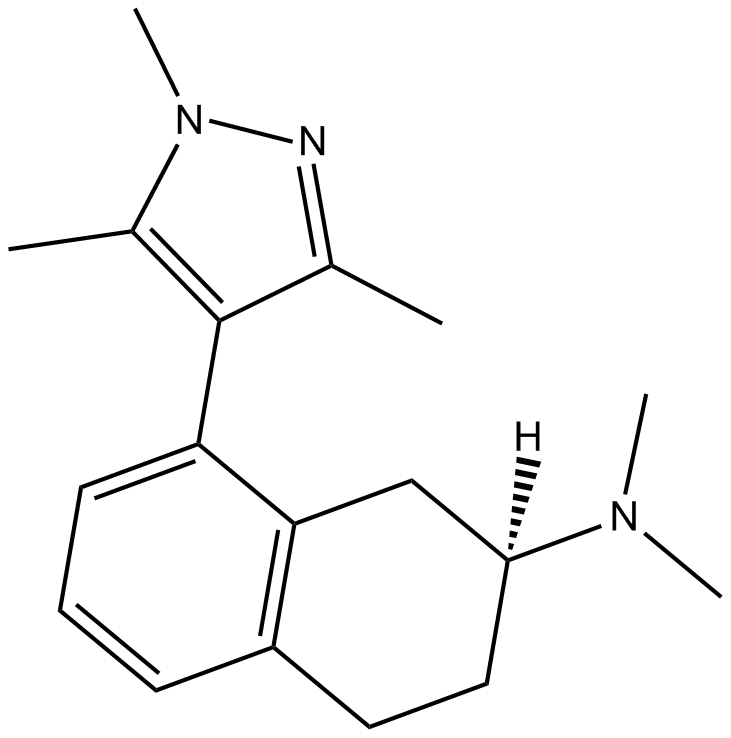AS 19 |
| Catalog No.GC17525 |
Potent 5-HT7 agonist
Products are for research use only. Not for human use. We do not sell to patients.

Cas No.: 1000578-26-6
Sample solution is provided at 25 µL, 10mM.
AS 19 is a potential 5-HT7 receptor agonist with an IC50 value of 0.83 nM [1].
5-HT7 receptor plays a role in the control of both sleep and circadian rhythms. This receptor may also play a role in other CNS disorders including cognitive disturbances, anxiety and migraine probably via both central and peripheral mechanisms [2].
By signaling through the 5-HT7 receptor, serotonin provides an accessory signal to enhance the activation of the T-cell. Compared with saline-treated controls, the proliferation of T-cell from PCPA-treated mice was significantly reduced. The PCPA inhibition efficacy ranged from approximately 18% to 49%. Addition of exogenous 5-HT at 1 μM completely restored the proliferation of the T-cell. Similar to exogenous 5-HT, addition of AS19 at 1 μM also completely restored T-cell proliferation after 48 hours [4].
SB-258719 is a selective 5-HT7 receptor antagonist. When AS-19 at a dose of 10 mg/kg was co-administered with SB-258719 at the same dose, which produced no effect on its own, the anti-hyperalgesic effect of AS-19 was reversed in both hotplate and tail-flick tests. That meant AS-19 exerts anti-hyperalgesic effect via 5-HT7 receptors [3]. SB269970 is also a selective 5-HT7 receptor antagonist. Some rats were prepared with a second intrathecal catheter and were pretreated with 7μl SB269970 at a concentration of 5mM. At all time points, AS-19-induced PMF was abolished by SB269970 pretreatment. This meant AS-19 elicited PMF via the activation of 5-HT7 receptor [5].
References:
[1]. Perez-García GS and Meneses A. Effects of the potential 5-HT7 receptor agonist AS 19 in an autoshaping learning task. Behav Brain Res, 2005, 163(1):136-40.
[2]. Thomas DR and Hagan JJ. 5-HT7 Receptors. Current Drug Targets-CNS & Neurological Disorders, 2004, 3(1): 81-90.
[3]. Ulugol A, Oltulu C, Gunduz O, et al. 5-HT7 receptor activation attenuates thermal hyperalgesia in streptozocin-induced diabetic mice. Pharmacol Biochem Behav, 2012, 102(2):344-8.
[4]. León-Ponte M, Ahern GP and O'Connell PJ. Serotonin provides an accessory signal to enhance T-cell activation by signaling through the 5-HT7 receptor. Blood, 2007, 109(8):3139-46.
[5]. Hoffman MS and Mitchell GS. Spinal 5-HT7 receptor activation induces long-lasting phrenic motor facilitation. J Physiol, 2011, 589(Pt 6):1397-407.
Average Rating: 5 (Based on Reviews and 23 reference(s) in Google Scholar.)
GLPBIO products are for RESEARCH USE ONLY. Please make sure your review or question is research based.
Required fields are marked with *




















